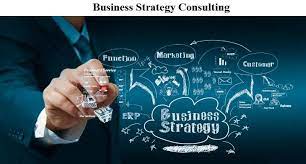Maximising Your Business’s Media Presence for Success
The Importance of Media Presence for Businesses
In today’s digital age, having a strong media presence is crucial for businesses looking to succeed and thrive in a competitive market. A robust media presence can help businesses build brand awareness, establish credibility, engage with their target audience, and ultimately drive growth and success.
One of the key benefits of a strong media presence is the ability to reach a wider audience. Through various media channels such as traditional print media, online publications, social media platforms, and broadcast outlets, businesses can connect with potential customers and stakeholders on a global scale. This increased visibility can lead to greater brand recognition and market reach.
Furthermore, a well-managed media presence can help businesses establish credibility and authority in their industry. By consistently sharing valuable content, thought leadership insights, success stories, and industry news, businesses can position themselves as experts in their field. This can enhance trust among customers, partners, investors, and other key stakeholders.
Engaging with the media also allows businesses to stay relevant and top-of-mind among their target audience. By proactively sharing news updates, product launches, promotions, events, and other relevant information through press releases, interviews, articles, and social media posts, businesses can maintain ongoing communication with their audience and keep them informed about the latest developments.
Moreover, a strong media presence can be instrumental in driving business growth by attracting new customers, partners, investors, and opportunities. Positive media coverage can generate buzz around a business’s products or services and create interest among potential clients or collaborators. This can lead to increased sales conversions, partnerships, investments, and overall business expansion.
In conclusion,a strategic media presence is essential for businesses that want to thrive in today’s competitive landscape. By leveraging various media channels effectively,businesses can enhance their visibility,establish credibility,engage with their audience,and drive growth.Contact us today to learn how we can help you build a powerful media presence that propels your business forward!
Understanding and Enhancing Media Presence: Key Questions for Businesses
- What is media presence and why is it important for businesses?
- How can businesses improve their media presence?
- What are the benefits of having a strong media presence?
- Which media channels are most effective for building a business’s presence?
- How can businesses measure the impact of their media presence?
What is media presence and why is it important for businesses?
Media presence refers to the visibility and engagement that a business has across various media channels, including traditional print media, online publications, social media platforms, and broadcast outlets. It encompasses how well a business communicates its brand, products, services, and values to its target audience through media channels. Media presence is crucial for businesses as it helps them build brand awareness, establish credibility, engage with their audience, and drive growth. By maintaining a strong media presence, businesses can reach a wider audience, position themselves as industry experts, stay top-of-mind among customers and stakeholders, and attract new opportunities for partnerships, investments, and business expansion. In today’s competitive landscape, having a robust media presence is essential for businesses looking to succeed and thrive in the digital age.
How can businesses improve their media presence?
To improve their media presence, businesses can adopt several strategies. Firstly, businesses should focus on creating high-quality, engaging content that resonates with their target audience. This content can include press releases, articles, blog posts, social media updates, and multimedia assets. Consistency is key – businesses should maintain a regular posting schedule to keep their audience informed and engaged. Additionally, businesses can proactively engage with journalists and media outlets to secure press coverage and interviews. Building relationships with key influencers and industry experts can also help amplify a business’s media presence. Leveraging social media platforms effectively, monitoring industry trends, and responding promptly to media inquiries are further ways for businesses to enhance their media presence and establish themselves as thought leaders in their field.
What are the benefits of having a strong media presence?
Having a strong media presence offers numerous benefits for businesses. Firstly, it enhances brand visibility and recognition, allowing companies to reach a wider audience and stand out in a competitive market. Secondly, a robust media presence helps build credibility and authority within the industry, positioning businesses as trusted experts in their field. Additionally, engaging with the media enables businesses to stay relevant and top-of-mind among their target audience, fostering ongoing communication and relationship-building. Ultimately, a strong media presence can drive business growth by attracting new customers, partners, investors, and opportunities through increased exposure and positive coverage.
Which media channels are most effective for building a business’s presence?
When considering which media channels are most effective for building a business’s presence, it is essential to understand that the effectiveness can vary depending on the nature of the business, target audience, and communication objectives. However, in general, a combination of traditional and digital media channels often yields the best results. Traditional media channels such as print publications, television, and radio can still be impactful for reaching a broad audience and establishing credibility. On the other hand, digital media channels like social media platforms, websites, blogs, and online publications offer targeted reach, interactivity, and real-time engagement with audiences. By strategically utilising a mix of both traditional and digital media channels based on the specific goals of the business, companies can maximise their visibility and impact in today’s competitive market landscape.
How can businesses measure the impact of their media presence?
Businesses can measure the impact of their media presence through various key performance indicators (KPIs) that reflect the effectiveness of their communication strategies. Metrics such as website traffic, social media engagement, press mentions, brand sentiment analysis, lead generation, and sales conversions can provide valuable insights into how well a business’s media presence is resonating with its target audience. By tracking and analysing these metrics over time, businesses can evaluate the reach, visibility, credibility, and overall impact of their media presence and make data-driven decisions to enhance their communication efforts for greater success.











